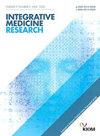针灸meta分析中的数据共享:与期刊政策和实际考虑的关联
IF 3
4区 医学
Q2 INTEGRATIVE & COMPLEMENTARY MEDICINE
引用次数: 0
摘要
数据共享可以减少研究浪费,使研究人员避免重复工作,并允许资源有效地用于解决新的临床问题。本研究旨在评估数据共享实践,并确定针灸meta分析的相关因素。方法PubMed检索了所有针灸类型的meta分析(2022年4月至2023年12月)。根据数据共享政策对期刊指南进行分类,并使用卡方检验或广义估计方程分析检查其与数据可用性声明(das)和数据可用性的关联。结果在3713项研究中,纳入了300项。与没有数据共享政策的期刊相比,发表在有数据共享政策的期刊上的文章更有可能包含das(75.8%对21.7%,p < 0.001)。当期刊强制共享而不是仅仅推荐共享时,DASs更频繁地出现(94.6% vs. 59.2%, p < 0.001)。虽然没有发现das或共享政策与数据可用性之间存在显著关联,但来自授权期刊的文章比来自推荐期刊的文章有更高的数据提供几率(or 1.58, 95% CI[1.11, 2.25])。非补充和替代医学(CAM)期刊文章在DAS纳入方面优于CAM期刊(79.1%比49.3%,p < 0.001),尽管数据可及性相当(71.6%比69.3%,p = 0.826)。影响因子与数据共享实践的任何方面均无显著相关(均p >; 0.05)。强制性期刊数据共享政策与更频繁地纳入DAS和提供原始数据有关,但单独的政策或DAS都不能确保数据集的可重用性。强制性政策加上适当的培训和支持可能有助于提高透明度,促进结果的可重用性和可重复性,并减少研究浪费。本文章由计算机程序翻译,如有差异,请以英文原文为准。
Data sharing in acupuncture meta-analyses: Associations with journal policies and practical considerations
Background
Data sharing can reduce research waste, enable researchers to avoid duplicating efforts, and allow resources to be effectively directed towards addressing new clinical questions. This study aimed to evaluate data sharing practices and identify associated factors in acupuncture meta-analyses.
Methods
A PubMed search identified meta-analyses of any type of acupuncture (April 2022 to December 2023). Journal guidelines were classified by data sharing policies, and their associations with data availability statements (DASs) and data availability, were examined using chi-squared tests or generalised estimating equations analyses.
Results
Of 3713 studies, 300 were included. Articles published in journals with data sharing policies were more likely to include DASs compared to those without (75.8 % vs. 21.7 %, p < 0.001). DASs were more frequently present when journals mandated sharing rather than merely recommended it (94.6 % vs. 59.2 %, p < 0.001). While no significant association was found between the presence of DASs or sharing policies and data availability, articles from mandating journals had higher odds of data provision than those from recommending journals (OR 1.58, 95 % CI [1.11, 2.25]). Non-Complementary and Alternative Medicine (CAM) journal articles outperformed those in CAM journals in DAS inclusion (79.1 % vs. 49.3 %, p < 0.001), though data accessibility was comparable (71.6 % vs. 69.3 %, p = 0.826). Impact factor was not significantly associated with any aspects of data sharing practices (all p > 0.05).
Conclusions
Mandatory journal data sharing policies were associated with more frequent inclusion of DASs and provision of raw data, but neither a policy nor a DAS alone ensured reusable datasets. Mandatory policies paired with adequate training and supports may help improve transparency, promote reusability and reproducibility of results, and reduce research waste.
求助全文
通过发布文献求助,成功后即可免费获取论文全文。
去求助
来源期刊

Integrative Medicine Research
Medicine-Complementary and Alternative Medicine
CiteScore
6.50
自引率
2.90%
发文量
65
审稿时长
12 weeks
期刊介绍:
Integrative Medicine Research (IMR) is a quarterly, peer-reviewed journal focused on scientific research for integrative medicine including traditional medicine (emphasis on acupuncture and herbal medicine), complementary and alternative medicine, and systems medicine. The journal includes papers on basic research, clinical research, methodology, theory, computational analysis and modelling, topical reviews, medical history, education and policy based on physiology, pathology, diagnosis and the systems approach in the field of integrative medicine.
 求助内容:
求助内容: 应助结果提醒方式:
应助结果提醒方式:


